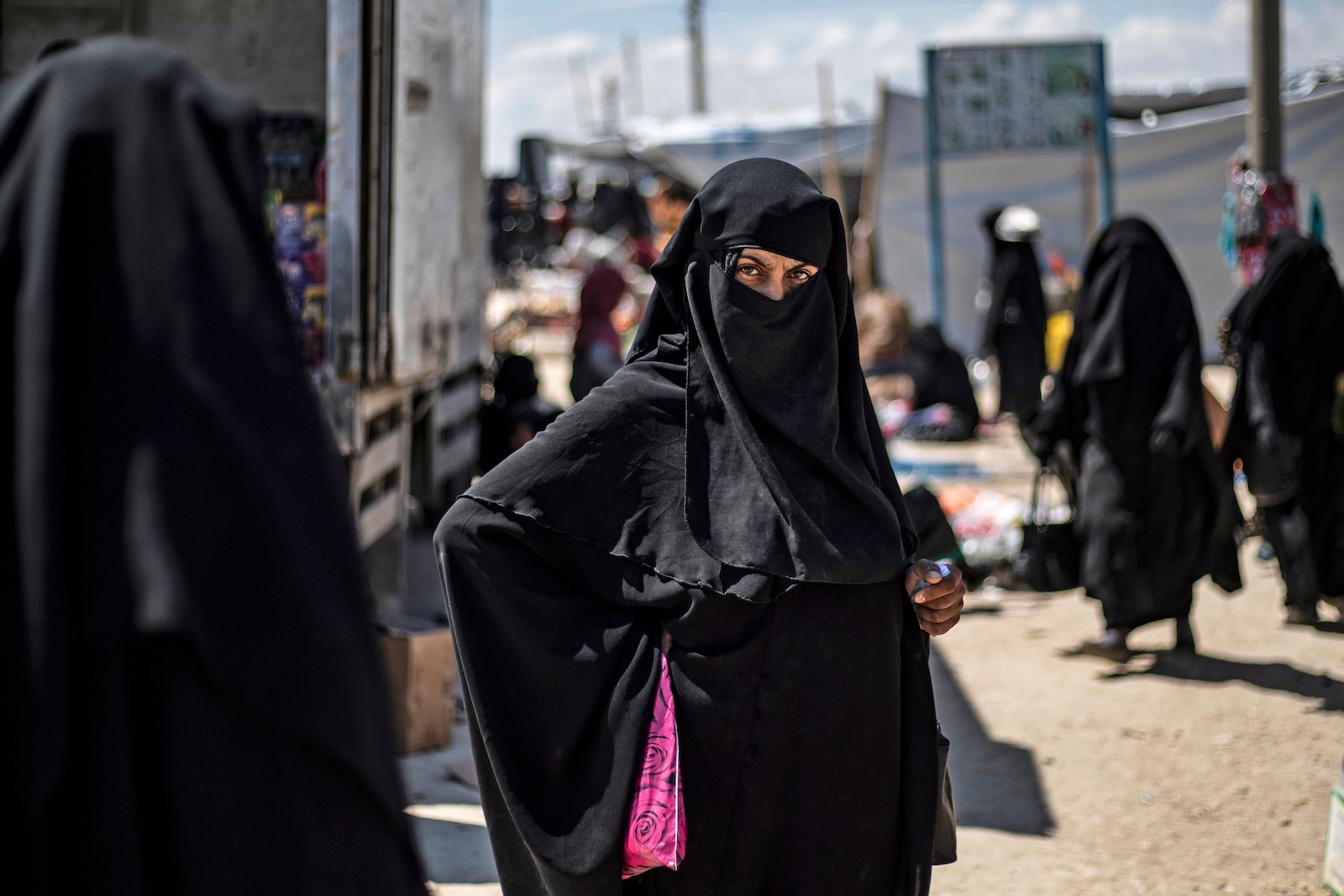Thousands of men, women and children remain in detention because of their former ties to ISIS
Washingtonpost – The Islamic State’s assault on the Gweiran prison in northeastern Syria last week was a disturbing reminder that prisons and camps across Syria and Iraq continue to hold an estimated 43,000 foreign men, women and children once associated with the group better known as ISIS. Audio of the assault, narrated by an injured 17-year-old Australian, described an Islamic State attack that resulted in multiple child casualties.The attacks signal a potential Islamic State resurgence — and prompted the largest U.S. military response since 2019. To foreign governments, the potential return of their citizens back into the ranks of the Islamic State represents a clear threat, potentially reinvigorating an extremist campaign once declared defeated.
The repatriation and reintegration of foreign fighters and their families is a complicated and contentious issue. While governments have several legal means to address what happens to male foreign fighters, often they lack the tools to process or help women and minors who did not take up front-line positions. Consequently, many countries remain reluctant to bring back citizens who traveled to join foreign conflicts.20 years later, America’s ‘War on Terror’ language has gone global However, research-based analysis suggests that repatriating foreign detainees to their home countries mitigates the risk of detained individuals returning to the Islamic State. And human rights groups point out that while some detained foreign people traveled freely, others were trafficked.
The international community has no cohesive plan to deal with long-running repatriation issues, in part because of persistent knowledge gaps about foreign terrorist fighters who travel with their families, and the implications for noncombatant repatriation and rehabilitation. Our research identified four critical blind spots that leave many Islamic State-affiliated families in limbo.
Why are there imprisoned families and minors?
The large number of minors held in prisons and detention camps in Syria and Iraq raises the question, “Who is a foreign fighter?” Unlike in foreign fighter conflicts of the past, the Islamic State recruited men, women and children in various roles to help legitimize the group’s governance ambitions. The foreign individuals detained in these facilities include recruits with roles on and off the battlefield.
Families have played an important part in the Islamic State campaign. Some individuals traveled with their families to join the fight, while in other cases families were formed in conflict zones. For example, a 2019 report estimates that women and minors made up 36 to 42 percent of those who traveled to join the ISlamic State from western Europe, and 46 to 54 percent of travelers from Eastern Europe. The Program on Extremism at George Washington University identified at least 14 adult women and an estimated 12 to 30 minors who traveled from the United States to Syria and Iraq. The Islamic State has ‘provinces’ in Africa. That doesn’t mean what you might think.
Women recruited by the Islamic State face an uncertain future
Gendered biases have also clouded policymakers’ understanding of the issue. The Islamic State actively recruited women into its ranks. While many women who traveled to join the group had the freedom to do so, once in-theater their choices were severely restricted by harsh Islamic State gender segregation policies that limited the ability of women to carry out even the most menial tasks without a male escort.
Although news reports have reductively described women’s roles as “jihadi brides,” women had diverse experiences under Islamic State rule. Some were married to Islamic State members, while others worked as doctors or teachers. In some cases, women served as part of the domestic security forces, or had limited participation in conventional military training, and later, operations. Adequately addressing questions surrounding repatriation and reintegration, we argue, requires a nuanced understanding of women’s experiences in the Islamic State campaign.
How do foreign fighters — and families — return home?
The means by which Islamic State foreign fighters and families return to their home countries varies across formal and informal pathways — a process often complicated by gender, age, timing and country of origin. Public policy has emphasized the formal repatriation aspects. The U.S. government, for example, has recently taken the lead in encouraging the world’s nations to bring their detained fighters back home, at least in theory.
Over the past few years, the U.S. approach has led to the formal repatriation of 12 adults and 16 children from Syria and Iraq, as of December 2021. However, the Program on Extremism also identified a further 15 individuals who returned to the United States through their own accord. This brings the total of publicly known U.S. returnees to 44, including 22 adults (18 men and four women) and 22 individuals who were born abroad or were minors when their parents traveled to join the Islamic State. The scope of the issue — i.e., the number of returnees in the United States and other countries — may be larger than initially anticipated. And the range of pathways of return may prompt a closer look at nuanced tools of reintegration and rehabilitation.Don’t miss any of TMC’s smart analysis! Sign up for our newsletter.
What are the consequences of indefinite detention?
Since 2019, thousands of foreign fighters and their families, including approximately 27,000 children, have remained in indefinite detention in Syria and Iraq. U.N. reports note a generation of youth is growing up in detention camps with dire health conditions and political instability. Nearly three years after the territorial collapse of the Islamic State, individuals who were brought by parents to Syria and Iraq as minors are now coming of legal age.
Moreover, as last week’s prison assault suggests, young male minors have been held alongside adult men in prison facilities. Administrators moved these minors, some as young as 12, to prisons after arbitrarily deeming them too old to be held in detention camps alongside women and young children. Recent Islamic State actions offer a harrowing reminder of the consequences of indefinite detention with no cohesive international plan of action.
Progress toward addressing long-running repatriation issues is hampered by the four blind spots described here. The continued reluctance of governments to address the situation for families and minors, along with issues related to women’s diverse participation in the Islamic State conflict, the formal and informal pathways for return, and the continued hesitancy to address the indefinite detention of foreign fighters and their families exacerbates humanitarian and security challenges. This increases the risk of a worst-case scenario — the return of foreign families into Islamic State ranks, and the possibility of a reinvigorated Islamic State campaign.




